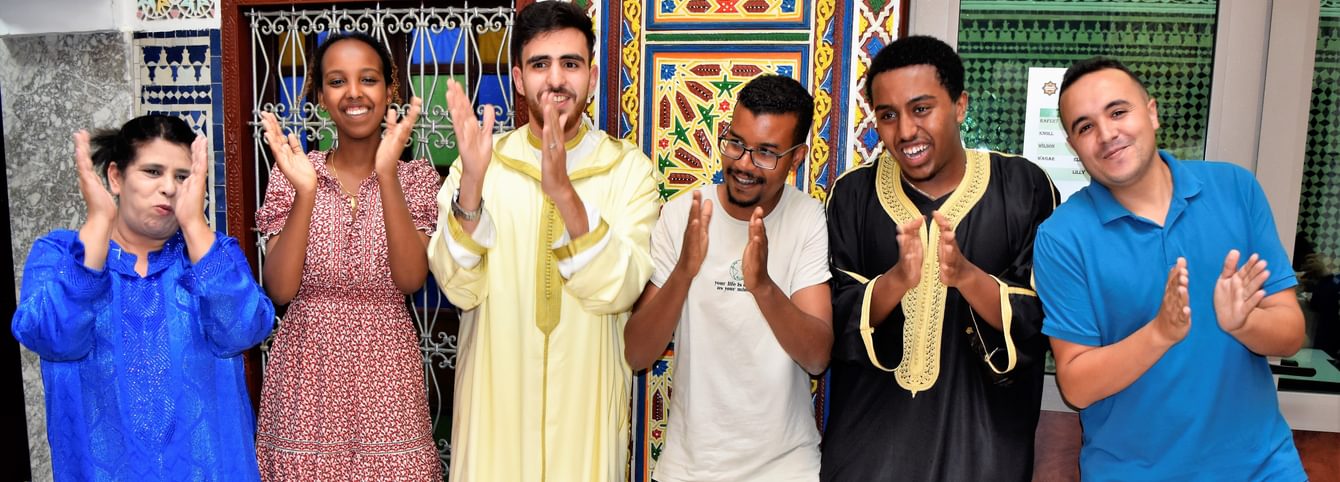The CLS Cohort
CLS Program cohorts tend to be diverse. Participants come from many different ethnic, racial, and socioeconomic backgrounds and communities and are of different gender identities and sexual orientations. CLS participants come from all over the United States; some are from rural or suburban areas, while others live in major cities. CLS students also attend a variety of institutions in the U.S. and may be pursuing undergraduate, graduate, or professional degrees. However, CLS participants share a dedication to learning their CLS language and an interest in the culture of their host community.
Fostering Positive Relationships
The CLS Program is a group-based program. It is designed for language learning in a group setting, and nearly all activities are done in groups. Because students spend a significant amount of time each day with their peers, it is critically important for each participant to commit to building healthy relationships within their CLS cohort.
Towards the beginning of the program, participants collaborate to identify a set of community guidelines that each member of the cohort agrees to follow. Participants are expected to treat one another with respect and to support one another’s learning. CLS is a cooperative experience, and participants should consider how their words and actions can contribute to a positive group dynamic. Students are urged to remember that the tone of their conversations with their peers can positively or negatively influence their perceptions of the host community and of their study abroad experience. Speaking to one’s peers about frustrations that one has experienced abroad can be helpful for processing emotions and working through challenges. If a peer shares a challenge that they are going through, participants are encouraged to take the time to listen, provide encouragement, and help to brainstorm constructive steps that the peer could take to address the situation. If a participant is worried about a peer, they are urged to share their concern with program staff.
CLS is a valuable opportunity for professional development, a key aspect of which is learning to navigate differences and cooperate with others towards a shared goal. Alumni often share that they learned a significant amount from their peers during the program, and the relationships that CLS participants build with one another can be a critical source of support while overseas. These relationships can also last long after the end of the program, as participants are likely to continue to interact with members of their cohort in their academic and professional careers.
Social Media Use
Participants are urged to focus on engaging with people in their host community to maximize the opportunities for linguistic and cultural immersion rather than spending time with online communities. Many CLS participants have reported that consciously limiting or restricting their social media use while on program positively impacted their language gains and immersion experience. CLS staff recommend the following practices for the duration of the CLS Program:
- Prioritize language learning and in-person experiences and communication
- Be aware of regulations governing social media that may be different than in the U.S.
- Turn off notifications on devices
- Use social media ‘consciously’ and self-regulate use
Whether in WhatsApp, Line, or any number of other apps, CLS participants frequently engage in group chats on program. We recommend CLS participants try to limit the time they spend in virtual chats, and be constructive, helpful, mature, and polite when they do engage. Consider leaving chats or to start different threads if the chat has become a distraction or is detrimental to the learning experience on program.


